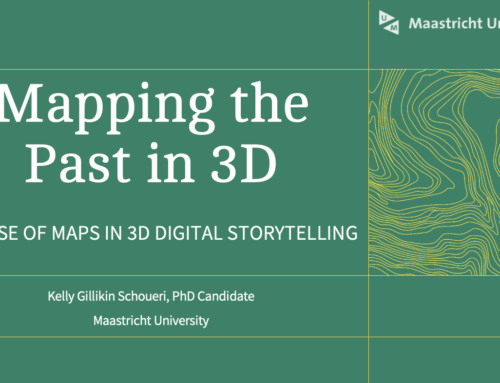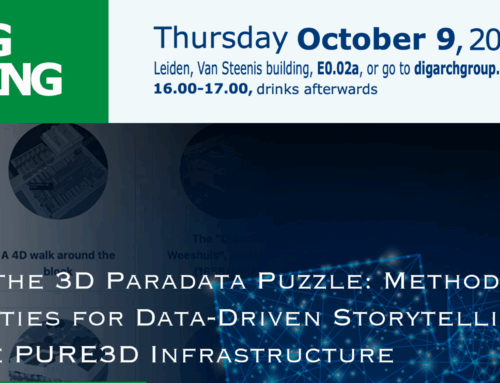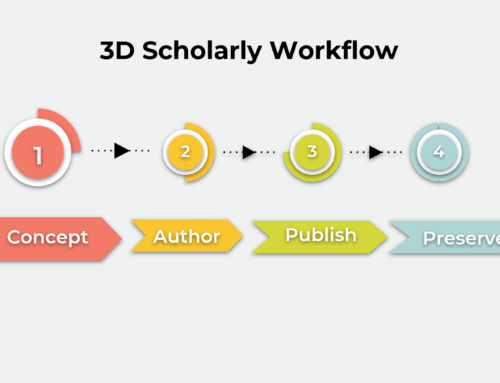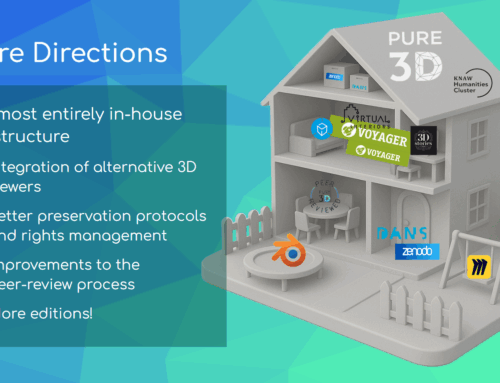At this year’s international CAA (Computer Applications and Quantitative Methods in Archaeology) conference, Costas Papadopoulos and Susan Schreibman, organised a session on ‘3D Scholarly Editions: Potential, Limitations, and Challenges’ to explore the new conceptual model/framework for 3D scholarship, that of ‘3D Scholarly Editions’ on which PURE3D is based. The session invited researchers who have been thinking about their 3D work along the lines of 3D Scholarly Editions and who find that available publication models are insufficient for communicating the value and meaning of 3D as well as the decision-making and argumentation that goes into and/or is developed from 3D scholarship. The eight papers delivered as part of this session discussed the conceptual and methodological frameworks to capture and make available the process of knowledge production in 3D projects; and, problematised the conceptual and technical limitations of 3D scholarship, especially in relation to peer-review, archiving and 3D FAIR Data, annotation, and 3D infrastructures. The presenters drew from several case studies from different spatial and temporal contexts and discussed the role and value of robust infrastructures for 3D scholarship.
The following papers were presented at the session:
- Making Meaningful Models as a Digital Novice: Modelling Bronze Age Food Vessels from Archeological Illustrations in Maya and Mudbox
by Rosemary M Hanson - Standardized output or standardized workflow? Discussion approaches to 3D mini- and micro photogrammetry of archaeological artefacts and their scientific usability
by Łukasz A. Czyżewski - What‘s in store? Normalized Artifact Databases from 3D-Acquisition Campaigns
by Hubert Mara, Bartosz Bogacz - ART3mis: Ray-based textual annotation on 3D cultural objects
by Vasileios Arampatzakis, Vasileios Sevetlidis, Fotis Arnaoutoglou, Athanasios Kalogeras, Christos Koulamas, Aris Lalos, Chairi Kiourt, George Ioannakis, Anestis Koutsoudis, George P. Pavlidis - The presentation of XRF assay data on 3D objects
by Joshua Emmitt, Jeremy Armstrong - Publication of a PhD in 3D: An interactive VR library of Dutch merchant ships
by John McCarthy - Defining a new paradigm for knowledge production and management within digital archaeology
by Paola Derudas - The French National 3D Data Repository for Humanities: Features, Feedback and Open Questions
by Sarah Tournon-Valiente; vincent Baillet; chayani mehdi; Xavier Granier; Bruno Dutailly; Valentin Grimaud





